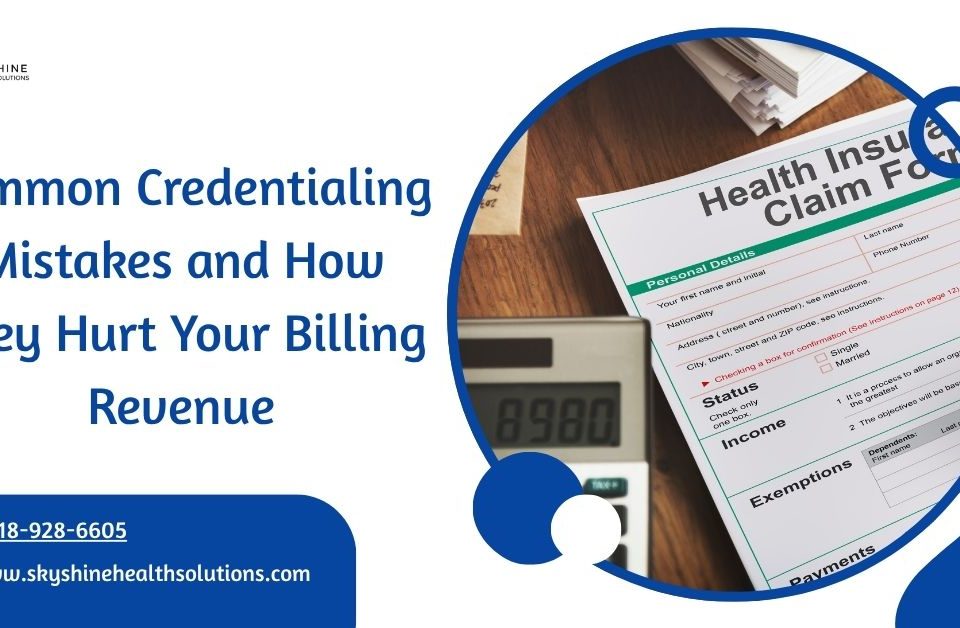
EOB (Explanation of Benefits): How to Read It and Why It Matters in Medical Billing
May 27, 2025
Medical Billing: Navigating Medicare and Medicaid Rules
June 2, 2025Insurance companies deny claims for various reasons, often due to errors or misunderstandings. Here are the top culprits:
1. Incomplete or Inaccurate Documentation
Missing details, such as policy numbers or dates of service, often lead to denials. Insurers require comprehensive records to process claims accurately.
2. Policy Exclusions
Some claims fall outside coverage terms, like pre-existing conditions or specific exclusions (e.g., floods in standard homeowner policies). Ignoring policy fine print causes rejections.
3. Late Submission
Filing claims past the deadline—typically 30-90 days—results in automatic denials. Timeliness is critical in the claims process.
4. Lack of Supporting Evidence
Without photos, receipts, or witness statements, insurers may deny claims due to insufficient proof of loss or damage.
5. Billing Errors
Incorrect codes, duplicate charges, or mismatched provider details can trigger denials, especially in medical or auto insurance claims.
How to Prevent Claim Denials
Preventing denials requires proactive steps. Follow these tips to strengthen your claims:
1. Review Your Policy Thoroughly
Understand your coverage limits and exclusions before filing. This helps you avoid submitting claims unlikely to succeed.
2. Submit Complete Documentation
Include all required details—policy number, incident date, and supporting evidence—like photos or invoices. Double-check for accuracy.
3. File Claims Promptly
Track deadlines and submit claims as soon as possible. Set reminders to stay on schedule and avoid late submissions.
4. Gather Strong Evidence
Document incidents with clear photos, videos, or written statements. Keep receipts and repair estimates to support your case.
5. Verify Billing Details
Ensure all codes and provider information are correct. For medical claims, consult your healthcare provider to avoid errors.
Additional Tips for Success
-
-
-
Communicate with Your Insurer: Contact your insurance agent for clarification on requirements.
-
Appeal Denied Claims: If denied, review the explanation and appeal with additional evidence within the allowed timeframe.
-
Seek Professional Help: For complex cases, consult an insurance expert or attorney.
-
-
Final Thoughts
Claim denials can be avoided with preparation and attention to detail. By understanding your policy, submitting accurate documentation on time, and gathering solid evidence, you can improve your chances of approval. Stay proactive, and don’t hesitate to seek assistance when needed.
Ready to learn more about managing your insurance? Explore our guides on [insert link to related post] or contact your insurer today!

Learn more about Insurance claims and HIPAA Compliance in Medical Billing
Have question? Check our Medical Billing FAQs
















